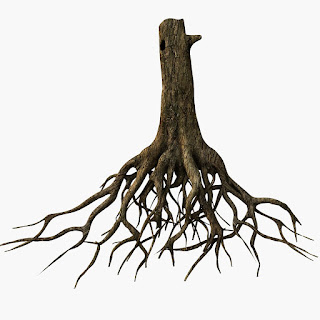Rooted
Read Genesis 11:27-32.
It's important to know where you came from. No matter where you take me or put me, at heart I'm a small town boy. I grew up in the same town my Dad grew up in—Sedalia, Indiana—and lived the first eighteen years of my life with many relatives close by. Two of my Dad's siblings lived within walking distance of our home, and for many years, so did his mother, my grandmother. In that setting, I heard stories, learned traditions and constantly remembered who I was and am. One of the challenges of my career (being a United Methodist pastor and moving every so many years) has been not having that same experience for my kids. Because it's important to know who you are, and at least some of that is found in where you came from.
Before Genesis sets out to tell the story of Abram (who will later become Abraham), the writer reminds us where Abram came from. He doesn't just appear on the page as if he suddenly sprung forth fully formed. No, Abram has roots in a culture (yet again a reminder that the Biblical faith is an historical faith). He has roots in a family—real people with real names and real histories. Abram, for all his faults and foibles, is a man who knows his roots. He is the son of Terah, brother to Nahor, husband to Sarai. He grew up in Ur, but after his grandfather's death, he and his father moved to Haran.
And though Genesis doesn't say it, he probably is (at least initially) a man of a different religion, the religion of his culture, the Sumerian or Chaldean religion. It was customary in those days to adopt the religion of the land you lived in, whatever it was, as it was generally believed that the "gods" were localized. You worshipped the god of whatever land you lived in. So, most likely, Abram worshipped the Sumerian/Chaldean god until he moved to Haran, and then he worshipped the god of that land. This is who he is; these are the places he is rooted. Of course, everything in that regard is about to change—but that's getting ahead of the story.
For now, consider your roots. How has the place you grew up, the towns you have lived in, the God or gods you have worshipped shaped you? Do you know your roots? Whether you are inclined to celebrate your roots or be embarrassed by them, they are a part of who you are. Thanks be to God, our roots are not all we are. But they are the places where God met us and where he began his work in us. So give thanks this day for your roots, even as you anticipate where God might lead you next.



I always thought of Abraham being a follower of God. That is interesting that he may not have known Him at some point in his life.
ReplyDelete